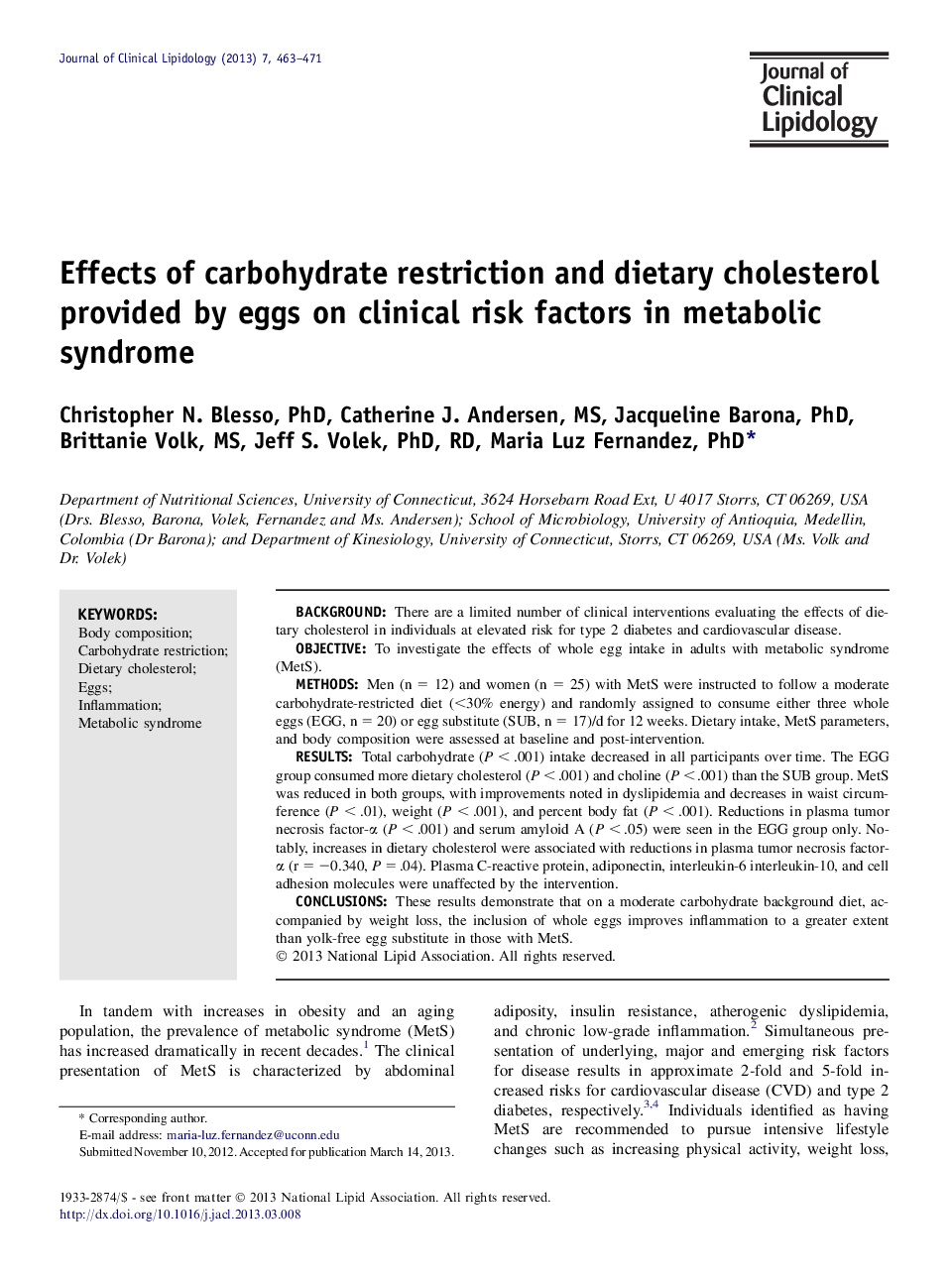| Article ID | Journal | Published Year | Pages | File Type |
|---|---|---|---|---|
| 5986088 | Journal of Clinical Lipidology | 2013 | 9 Pages |
BackgroundThere are a limited number of clinical interventions evaluating the effects of dietary cholesterol in individuals at elevated risk for type 2 diabetes and cardiovascular disease.ObjectiveTo investigate the effects of whole egg intake in adults with metabolic syndrome (MetS).MethodsMen (n = 12) and women (n = 25) with MetS were instructed to follow a moderate carbohydrate-restricted diet (<30% energy) and randomly assigned to consume either three whole eggs (EGG, n = 20) or egg substitute (SUB, n = 17)/d for 12 weeks. Dietary intake, MetS parameters, and body composition were assessed at baseline and post-intervention.ResultsTotal carbohydrate (P < .001) intake decreased in all participants over time. The EGG group consumed more dietary cholesterol (P < .001) and choline (P < .001) than the SUB group. MetS was reduced in both groups, with improvements noted in dyslipidemia and decreases in waist circumference (P < .01), weight (P < .001), and percent body fat (P < .001). Reductions in plasma tumor necrosis factor-α (P < .001) and serum amyloid A (P < .05) were seen in the EGG group only. Notably, increases in dietary cholesterol were associated with reductions in plasma tumor necrosis factor-α (r = â0.340, P = .04). Plasma C-reactive protein, adiponectin, interleukin-6 interleukin-10, and cell adhesion molecules were unaffected by the intervention.ConclusionsThese results demonstrate that on a moderate carbohydrate background diet, accompanied by weight loss, the inclusion of whole eggs improves inflammation to a greater extent than yolk-free egg substitute in those with MetS.
